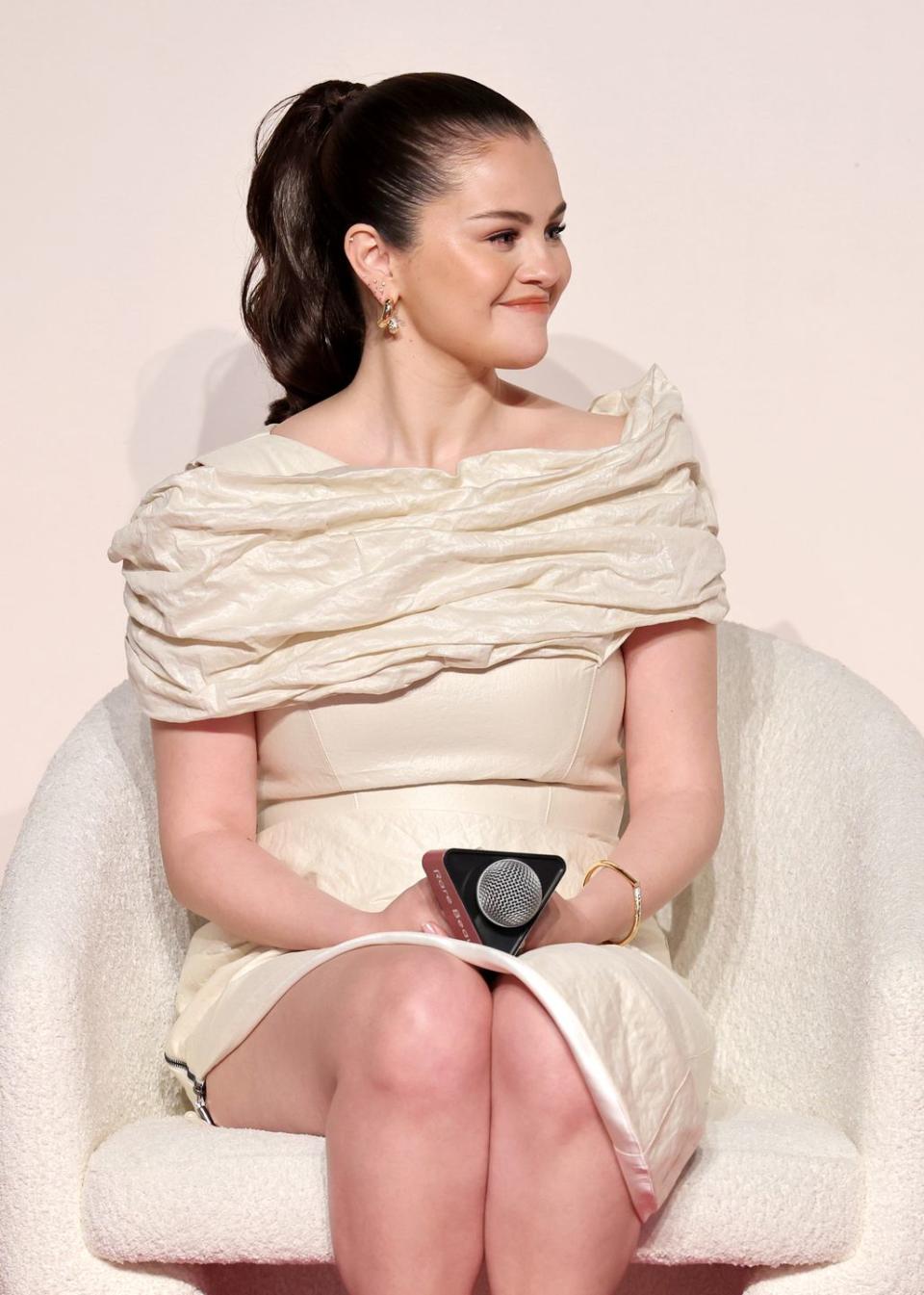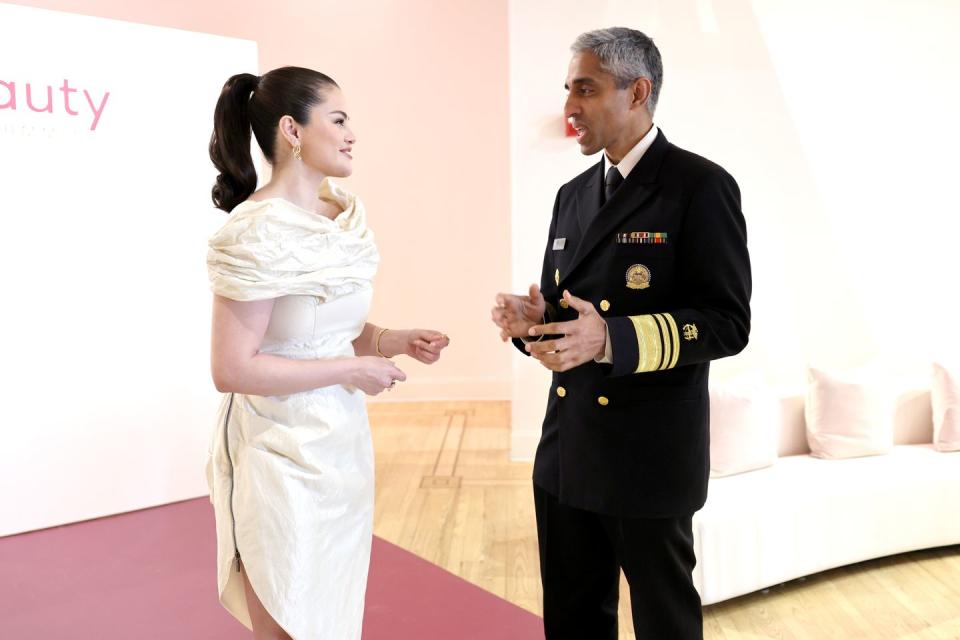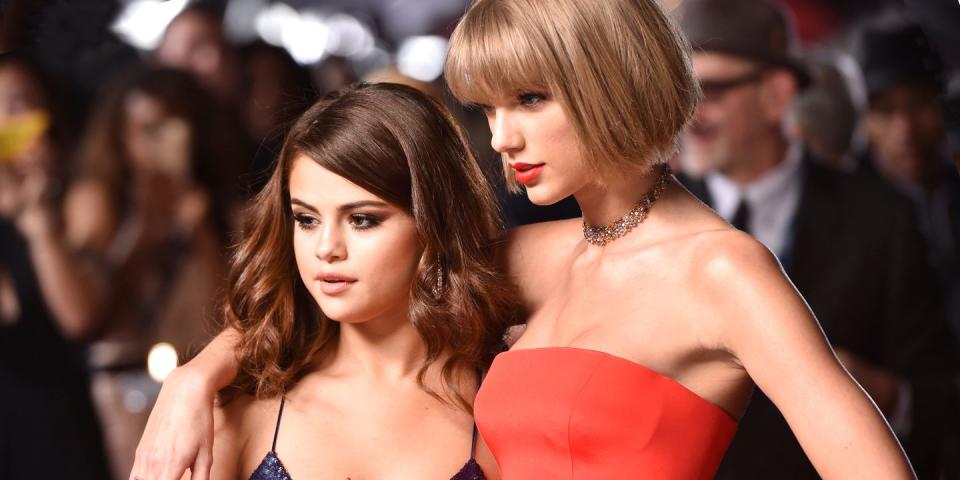Selena Gomez Opens Up About Her History With Social Media and What Kind of Friend She Is in Private

- Oops!Something went wrong.Please try again later.
Selena Gomez and her Rare Beauty team continued their work in mental health advocacy by hosting their third annual mental health summit today in New York City. Gomez appeared on the event’s first panel, speaking with the U.S. surgeon general, Dr. Vivek Murthy, about the importance of community and how it can help combat the loneliness epidemic in the country.
Gomez opened up about her relationship with social media, expanding on remarks she made last week during her Time100 Summit talk about quitting Instagram for four years. She also gave a glimpse into what kind of friend she is in her personal life and discussed how she supports her loved ones. Gomez ended the panel by revealing her future plans to devote her career to mental health advocacy full time.

Dr. Murthy called time spent in person with loved ones the highest-quality form of social connection. From there, in order of quality, Dr. Murthy ranked video calls as second best, followed by phone calls, emails, and texting.
When asked about what she does daily to connect with people and take care of her mental health, Gomez admitted: “I am horrible at responding to texts in general, so don’t text me.”
She explained, “I’m just a little bit more old school, so I like calling. But for example, the other day, my friend was going through a breakup, and I had the day off of work, and I just went to her office and sat with her for like an hour or two and just talked, because I didn’t have anything else to do. I would’ve sat and watch Friends [otherwise]—I have a problem.”
Gomez continued more seriously, “It’s genuinely the littlest things. I mean, I work with incredible people in my life, and I watch them handle themselves. They remember people’s names, they show up on time—all of these things matter. And I feel really lucky to be surrounded by people that can help me feel like I can do something every day. And that’s as simple as calling my 10-year-old sister. She doesn’t really want to be on the phone with me though, [but] she’ll be there to do that. She’s like, ‘OK. Well, good to see you.’”

At another point during the panel, Gomez expanded on how social media changed her life, starting with its debut during her adolescence.
“Well, I’ve had a very complex relationship with social media,” she prefaced. “I remember when it came out, it was the weirdest thing. I didn’t believe it would do anything. And I recognized that a lot of feelings that I didn’t feel growing up just started happening. So it would make me feel like I wasn’t good enough or I wasn’t really leading a good life or, ‘oh, everybody else did this,’ and I know it’s just very silly. And ultimately, I took four years off, and that was the best gift I could have given myself, because I was actually aware of what was happening. I would get phone calls from friends instead of, ‘did you see my story?’ It was like, ‘Well then, tell me your story.’ It’s like now I can have communication.”
Gomez then touched on the positive aspect of social media: “For my personal [social accounts], I love being able to share a little bit of my life. But with Rare Beauty, all the comments are always available. We look through and search through, and we just want to make sure that we’re doing the best we can with social media. But I do think it’s important to take some of breaks every now and then.”
Selena Gomez and Taylor Swift’s 14+ Year Friendship Timeline

Dr. Murthy praised Gomez for sharing her story. He said that the students he has traveled the country talking to “always bring up social media, and they actually mentioned a lot of what you just said: that using social media, while it can have some benefits—sometimes they can connect with old friends, and they learn interesting information—in parallel, it also kind of makes them feel worse about themselves because they're constantly comparing themselves to other people.”
He went on to stress that social media also “steals away other parts of our life that can be really consequential.”
“Over time, what’s happened is our time in person with people has shifted to online, and that might not seem like a big deal,” Dr. Murthy added. “It’s like, ‘well, that’s just a new way of communicating with people,’ but actually, it is a big deal because it turns out that over thousands of years, we evolved to have face-to-face interactions with people to interpret, not just the content of what somebody is saying, but also their body language and the tone of their voice and the facial expression they have and also what they’re not saying and the nuances there.”
Social media takes away the “human guardrails” of normal social interaction, according to Dr. Murthy, which prevents “us from being overly mean or judgmental toward somebody in person.” Without those, communication can become meaner and more detrimental to one’s health.
Gomez spoke toward the end of the panel about how she sees mental health advocacy as more than just a passion project. “I want nothing more than to be able to be remembered by things like this more than anything else, because this is what makes me happy,” she said of her work in the field and through her company’s Rare Impact Fund.

When asked about her hopes for the future of mental health discussion in the U.S., Gomez said: “Well, I think moments like this [summit] make me very hopeful, but I don’t think I’ll ever stop doing this. So I want to say on my part, I have great relationships, and I’m able to do as much as I can. I’m obviously not a political figure or anything, but I would do as much as I possibly could eventually. I probably would stop work and devote most of my time to this. That’ll [be] a while from now. But I don’t know, I have big hopes, but I don’t know what that looks like. I just want it to be something that people can feel and understand.”
You Might Also Like

